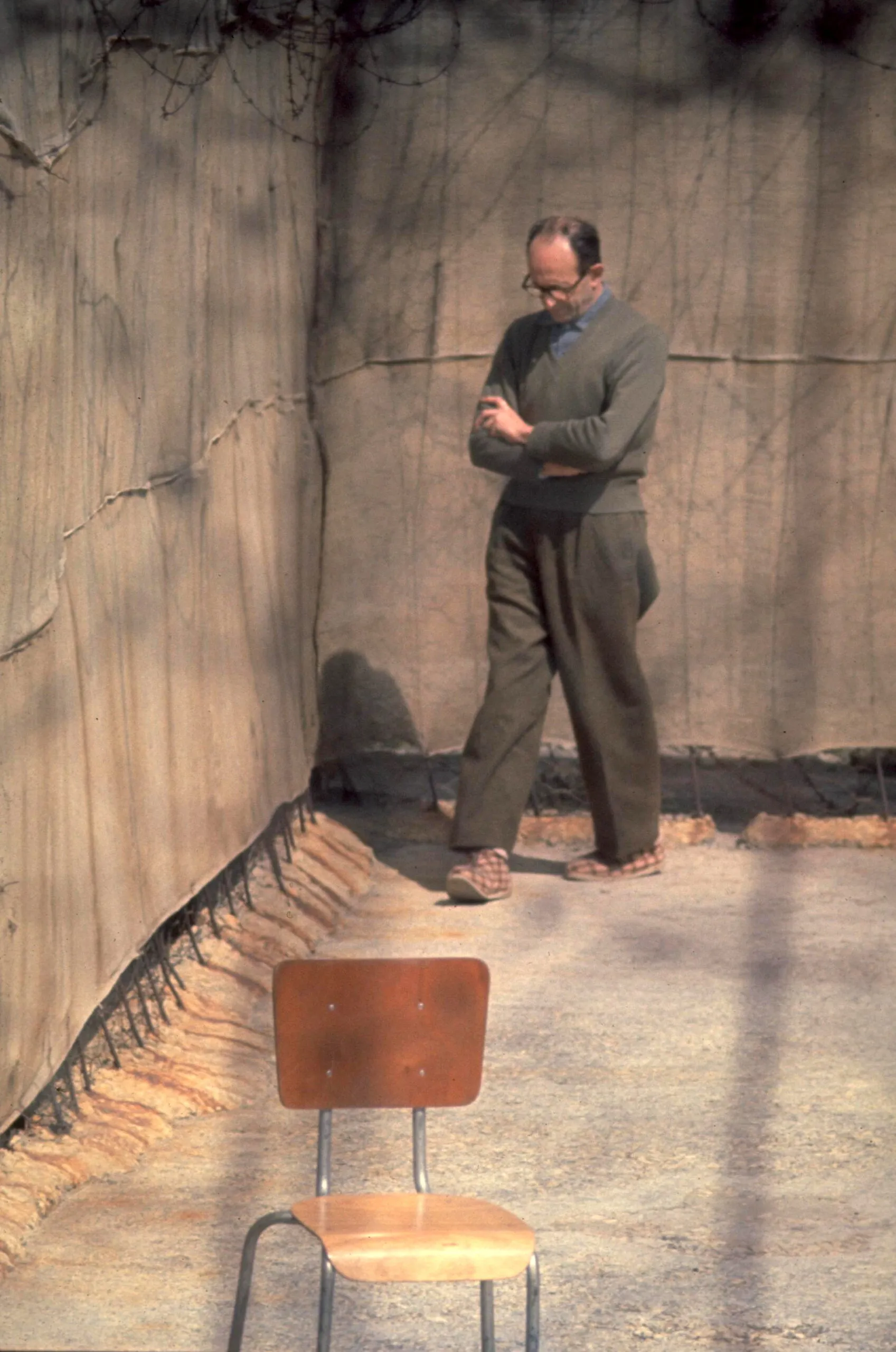For those who know about the astoundingly nervy mission in which Israeli agents in Argentina secretly apprehended the fugitive war criminal Adolf Eichmann and whisked him off to Jerusalem to be tried as the architect of the “Final Solution,” the new film Operation Finale may seem unnecessarily didactic. The movie stops here and there and forces the actors to provide wooden exposition about the historical details it portrays. It is unfortunate that screenwriter Matthew Orton and director Chris Weitz were unable to find a more graceful or supple way to handle these matters.
But then it occurred to me: How many people today actually do know about the Eichmann case? His seizure took place 58 years ago, his trial 57 years ago, his execution 56 years ago, and the publication of Hannah Arendt’s Eichmann in Jerusalem 55 years ago. The never-ending controversy over Arendt’s repugnant treatment of the case is likely responsible for the fact anyone knows anything at all about Eichmann today.
Three generations have come to life since he was apprehended. More than three-quarters of Americans were not yet born when Israeli prime minister David Ben-Gurion announced to a shocked world that Eichmann had been removed to Jerusalem to face trial for his crimes—the first time in history, as Orton has Ben-Gurion say in Operation Finale, that the Jews secured the power to judge their executioner.
It is a great and twisty story that begins with a happenstance: A blind Jew living incognito in Argentina (played by, of all people, the 1970s miniseries king Peter Strauss) figures out that his daughter’s new beau is Eichmann’s son. The news is transmitted to Jerusalem, and the legendary spy chief Isser Harel (played by Lior Raz, creator and star of the popular Israeli Netflix show Fauda) begins designing the mission to capture Eichmann. (In fact, it took several years for the mission to get underway, but the compression of time here makes sense for dramatic purposes.)

The movie focuses on the intelligence officer Peter Malkin—the Israeli who walked up to Eichmann as he headed home down Garibaldi Street in Buenos Aires on May 11, 1961, said “Un momentito, señor,” then subdued him until his colleagues drove up and stuffed him in a car. Once they got Eichmann to the safe house where they had to stash him for 10 days while they prepared to spirit him from the country, Malkin unexpectedly became the key to getting Eichmann to talk about his crimes and cooperate at a crucial moment. His terrific 1991 book Eichmann in My Hands, written with Harry Stein, is the key source material for the movie; in the book, he portrays himself as a far jauntier and more amused person than the solemn and haunted fellow Oscar Isaac limns in Operation Finale.
But Isaac’s Malkin isn’t really a character; he’s a stand-in for Israel and post-Holocaust Jewry. He is haunted by the memory of his sister Fruma and her children, slaughtered in a mass grave in a Polish forest, and is unable to form meaningful human attachments as a result. By bringing Eichmann to justice, he finds a measure of peace and is able to move on with his life.
If the movie has a flaw apart from its earnestness, it is that Ben Kingsley’s Eichmann is such a compelling character you kind of miss him when he’s not on the screen. In part this is due to the fact that Kingsley is one of the greatest actors alive. But it is also due to the decision made by Orton and Weitz to offer an implicit criticism of Arendt’s horrific “banality of evil” thesis. Their Eichmann is satanic in his incomprehensible mysteriousness—a subtly devious manipulator of his interrogators who maintains a chilling power even in his hopeless state. The movie’s indelible moment comes when Malkin feeds a blindfolded Eichmann for the first time and watches him bite and chew with terrifyingly regimented precision.
I took my daughters, 14 and 11, to see Operation Finale. Now they know something crucial about their people and our history they did not know before—about a moment in time when a victimized people transcended their victimization. For that alone, I am deeply thankful this movie was made.
